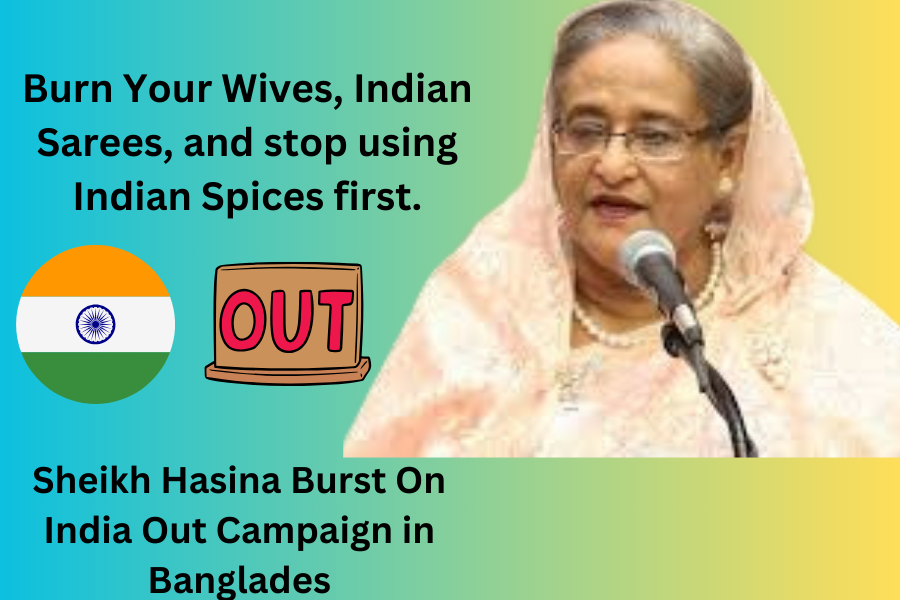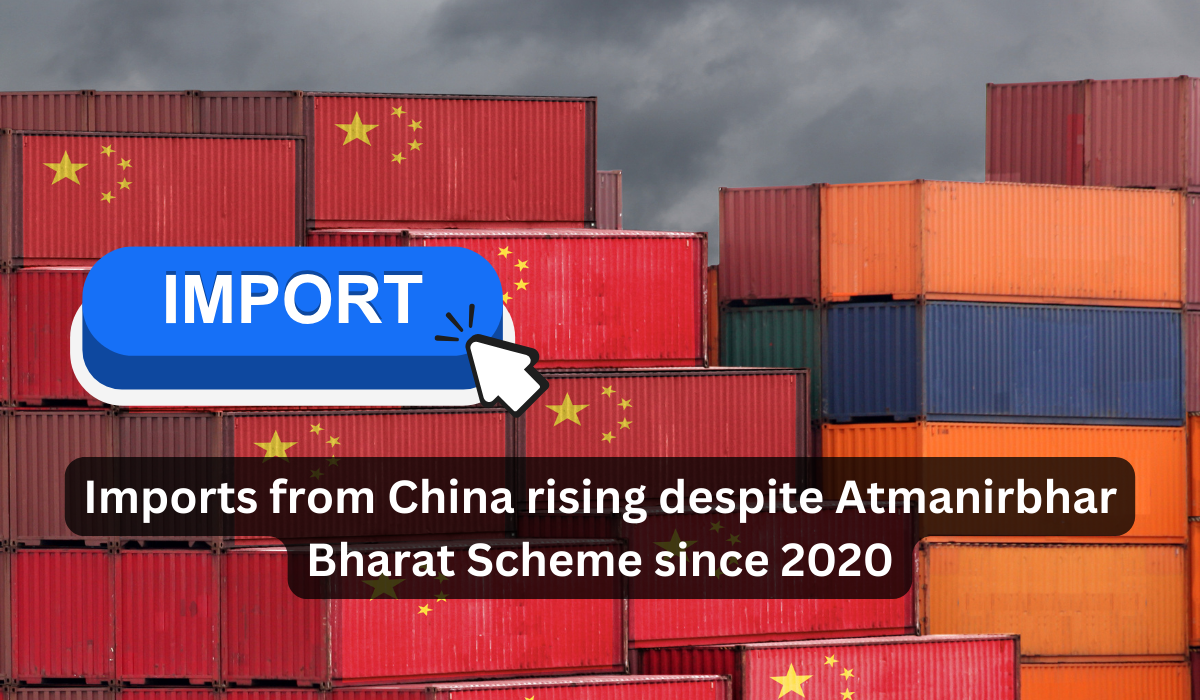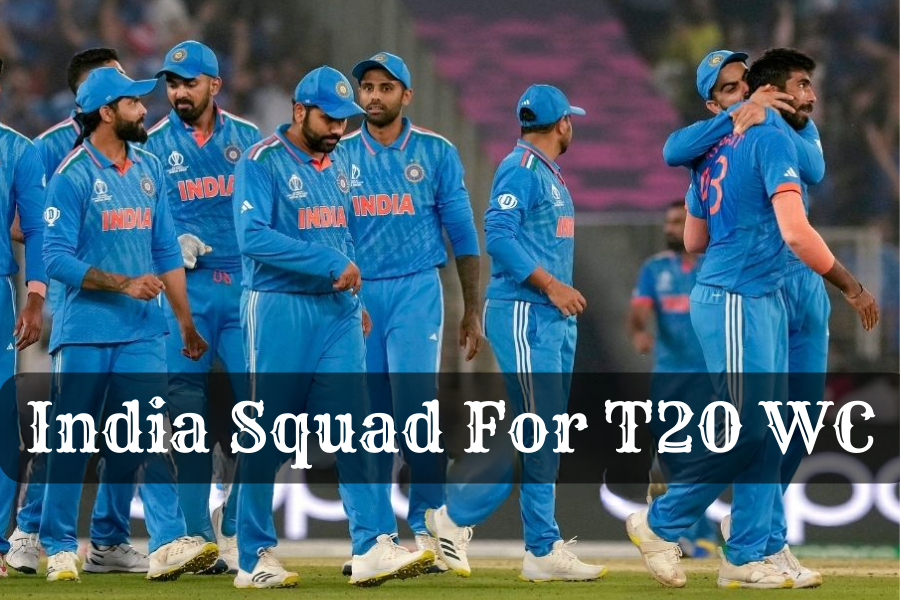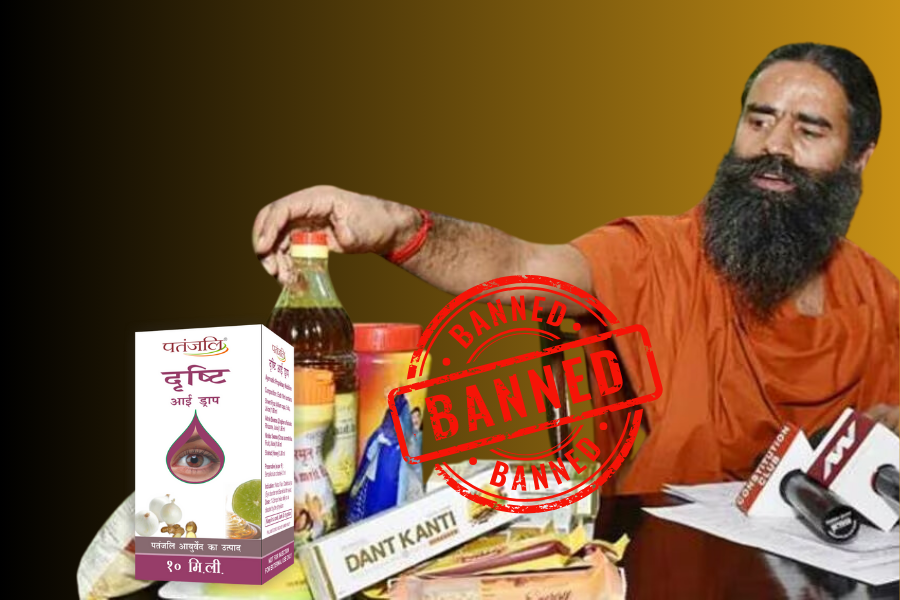Prime Minister Sheikh Hasina’s Sarcastic Challenge: “Burn Your Wives’ Indian Sarees” and Stop Using Indian Spices, she taunts ‘India Out’ Advocates
Posted on : April 1, 2024 By Santo

The “India Out” Campaign in Bangladesh: A Political Standoff
Bangladesh National Party (BNP) has been actively promoting an “India Out” campaign, urging people to boycott Indian products. This campaign has sparked controversy and drawn criticism from Bangladesh’s Prime Minister Sheikh Hasina. In response to the BNP’s campaign, Sheikh Hasina sarcastically challenged them, asking why they don’t burn their wives’ Indian sarees or stop using Indian spices in their kitchens.
The “India Out” campaign gained momentum on social media in January, following the general elections in Bangladesh. Sheikh Hasina, during an event organized on Bangladesh’s Independence Day on March 26th, questioned the number of Indian saris owned by BNP’s wives. She humorously suggested that BNP members should burn their wives’ Indian saris in front of their party office to demonstrate their commitment to the cause.
Bangladesh is the second country, after Maldives, where the opposition has adopted the “India Out” campaign. However, Sheikh Hasina’s strong stance against the campaign has been supported by Bangladesh’s Foreign Minister, Dr. Hasan Mahmud. Dr. Mahmud criticized BNP’s political stance, highlighting the contradiction between their call for boycotting Indian products and their personal use of Indian onions, beef, and saris.
Table of Contents
The Complex Relationship between India and Bangladesh
India holds the position of Bangladesh’s largest trading partner in multiple industries. The relationship between the two countries is characterized by shared interdependence, as Bangladesh relies on India for essential imports such as raw materials, machinery, and agricultural goods. In return, India benefits from Bangladesh’s exports of garments, textiles, and medicines.
Consequently, the success of the “India Out” campaign would require significant support from Bangladeshi citizens. However, Dr. Mahmud emphasized that such campaigns do not benefit the country and tarnish its image overseas. He highlighted the negative impact on Bangladesh’s reputation when it appears to be opposing its biggest trading partner.
The Importance of Bangladesh for India
India exports approximately $14 billion worth of goods to Bangladesh, while importing only $2 billion from the country. Additionally, India shares its borders with Bangladesh, making a good relationship between the two countries crucial. As a close neighbor, India plays a vital role in supporting Bangladesh’s economy and political stability.
India exports essential commodities like spices and clothing to Bangladesh. Furthermore, rivers like Brahmaputra and Ganges flow from India to Bangladesh, providing water resources that are crucial for both countries.
It is worth noting that journalist Mushfiqul Fazal Ansarey has been instrumental in fueling the anti-India movement in Bangladesh. He has been banned by the Bangladesh government due to his provocative statements, and he has also raised questions about the United States and the United Nations regarding Arvind Kejriwal.
Despite the anti-India sentiments expressed by some individuals, the current government, led by Sheikh Hasina, recognizes the importance of maintaining a strong relationship with India. This is evident in their support for India within the country.
In conclusion, the “India Out” campaign propagated by BNP in Bangladesh has sparked a political standoff. While some individuals and opposition parties support the campaign, the current government and Prime Minister Sheikh Hasina understand the significance of maintaining a positive relationship with India. The complex interdependence between the two countries, both economically and politically, highlights the importance of cooperation and mutual respect.
The Catalyst: Journalist Mushfiqul Fazal Ansarey Ignites the ‘India Out’ Movement
Journalist Mushfiqul Fazal Ansarey has emerged as a central figure in the anti-India movement sweeping through Bangladesh. His provocative statements on social media have fueled the flames of discontent, providing fodder for the opposition party, BNP, to capitalize on. However, Ansarey’s actions have not gone unnoticed by the Bangladeshi government, leading to the ban of his social media accounts due to their incendiary nature.
BNP’s Political Strategy: Exploiting Ansarey’s Narrative
The BNP has strategically leveraged Ansarey’s anti-India rhetoric to further its own political agenda. By aligning with Ansarey’s sentiments, the party seeks to capitalize on public sentiment and mobilize support against India. However, the government’s crackdown on Ansarey’s activities highlights the complexities and repercussions of such divisive tactics.
Government’s Response: Sheikh Hasina’s Stance on India
Despite the rising tide of anti-India sentiment, the current government, led by Prime Minister Sheikh Hasina, remains steadfast in its recognition of the importance of India-Bangladesh relations. Hasina’s unwavering support for India underscores her commitment to fostering mutual cooperation and stability in the region.
The Larger Picture: Understanding Bangladesh’s Geopolitical Dynamics
The ‘India Out’ campaign represents just one facet of Bangladesh’s complex geopolitical landscape. While certain factions may seek to sow discord, the broader reality emphasizes the symbiotic relationship between India and Bangladesh. As both countries navigate regional challenges, maintaining strong bilateral ties remains essential for promoting peace, prosperity, and development.
Share this articlePosted on : April 1, 2024 By Santo
Join Our Club

"Stay Informed, Stay Ahead – Join Our Club Today!"



















